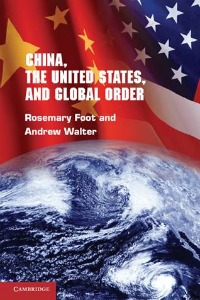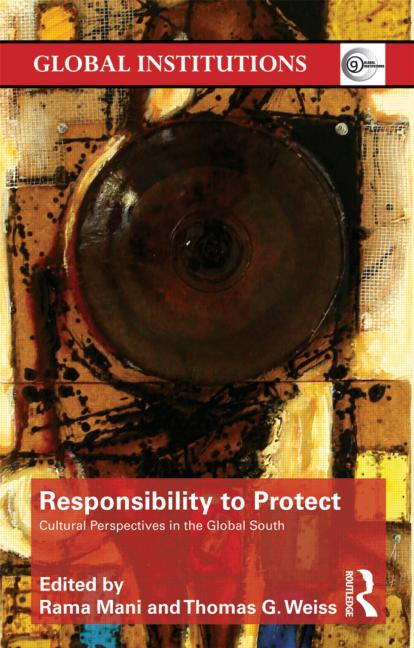The U.S. Needs a Grand Strategy, Not Grandstanding
In the New Hampshire debate, Mitt Romney trumpeted his willingness to engage China in a trade war. Romney’s longstanding efforts to paint himself as someone willing to stand up to China exemplify an alarming trend of China-bashing in U.S. politics. Rick Santorum, among others, has echoed Romney, declaring, “I want to beat China.” Such statements are primarily targeted at shoring up political support and secondarily at painting President Obama as being soft on China. We should not take them as an accurate indication of future policy. And despite this overriding political calculus, these remarks are on to something – Beijing’s currency manipulation gives China a competitive advantage in global trade, and its abuse of intellectual property rights ought to be …
David Miliband: offering a vision for the future or a defence of the past?
When David Miliband spoke at the Cambridge Union last week, was he espousing a new, more creative foreign policy or did he simply wish to defend the Bush-Blair approach of the preceding decade? David Miliband has become something of a peripatetic political being. For large parts of the parliamentary year he simply disappears and people begin to ask the ‘what’s he up to now?’ question they asked of Gordon Brown. But suddenly, almost ex nihilo, he appears again and begins a flurry of speaking engagements, interviews and articles all to do, supposedly, with a political cause he has aligned himself to. The cause that prompted him to speak at the Cambridge Union and at other universities, for example, was the …

China, the United States, and Global Order: An Interview with Professor Rosemary Foot
Rosemary Foot is a Professor of International Relations and John Swire Senior Research Fellow at St Antony’s College, Oxford. She has been a celebrated China scholar since completing her doctorate at the London School of Economics on Sino-Soviet relations and West Asia. Here, Professor Foot takes a moment to speak with Politics in Spires regarding her most recent book. Congratulations, your latest book, China, the United States, and Global Order has been praised by Foreign Policy Magazine as one of the 23 Essential Readings of 2011. Could we begin with you telling us a bit about the efforts behind this work? The book was a collaborative effort.* My co-author [Andrew Walter] is a specialist in international political economy, and I …

Many Trails to Freedom: Islamic Democracy is not an Oxymoron
“I disapprove of what you say, but I will defend to the death your right to say it.” – Voltaire. Over Christmas I visited Boston and had the occasion to walk the famous freedom trail: 3 miles of sights commemorating American independence. As I walked this hallowed ground I pondered on those fighting for freedom today, in the streets of Cairo, Homs and Tunis. Having met some of these people, I wondered at the suspicion we direct at the Islamic parties now gaining power, as if we forgot our own history. American democracy was born of Puritan principles of self-government, but that did not prevent it from evolving into the (more or less) secular body it is today. Ignoring this …

On ‘Responsibility to Protect: Cultural Perspectives in the Global South’
At the 2005 UN World Summit, more than 170 Heads of State and Government accepted three interlinked responsibilities, which together constitute the principle of ‘responsibility to protect’ (R2P). First, States accepted the responsibility to protect their own populations from genocide, war crimes, ethnic cleansing and crimes against humanity. Second, States promised to assist each other in fulfilling their domestic protection responsibilities. And third, the international community took on a collective responsibility to react, in a timely and decisive manner, if particular States are manifestly failing to protect their populations from the abovementioned mass atrocity crimes. Despite a quite remarkable normative development (see for example the frequent invocation of R2P in relation to the recent Libya crisis), this R2P principle is …

Cameron taking UK out of Europe without a referendum?
When the ‘make or break’ summit to save the euro finished in Brussels on Friday afternoon, David Cameron headed rapidly for the exit without the traditional end of summit press conference (making do, unusually, with only an interim pre-dawn one as the leaders stumbled out from their almost ten hours overnight talks for a short break before breakfast). As the dust settles from this critical summit, the gap between the UK and other European countries has never been wider, nor the UK’s influence closer to zero. As Tory sceptics applaud what any sane observer would call a major foreign policy disaster, could it be that Cameron is in the process of taking the UK out of the EU without a …

Turkey in the world – between continuity & change
Just returned from a talk by the current Turkish Ambassador to the UK. The event was under Chatham House Rules, hence I will not be able to report from it. But I will use this and previous events in the last couple of weeks as an anchor for some reflections on Turkish Foreign Policy. // A rising power… Last week Davutoglu, Babacan, Boris Johnson and Jack Straw gave some interesting speeches at a dinner in London. The overall tone was clear: Turkey is a rising regional if not global power. It is the 16th biggest economy in the world with phenomenal stable growth figures currently approximately at around 8% per annum. Erdogan is a leader empowered with all three Weberian …

Europe’s political crisis at heart of eurozone meltdown
The first week of November 2011 has been a tipping point; the moment when it belatedly dawned on pundits and politicians alike that the euro crisis at heart is political – and that if it’s politics versus the markets, then politics is losing hands down for now. From outgoing Greek Prime Minister Papandreou’s torpedoing of the G20 by his ‘bolt from the blue’ referendum call, swiftly withdrawn under outraged pressure from the Merkel-Sarkozy tandem, to Italy’s Berlusconi teetering on the edge, then announcing he will resign and abandon his attempts to cling to power, to Sarkozy himself introducing larger than expected ‘austerity’ cuts despite the upcoming presidential election in 2012 – politics is back. But normal EU politics this is …









